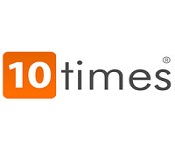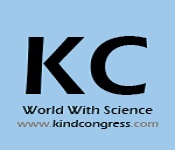BASIC AUTOIMMUNITY
Autoimmunity is the system of immune responses of an organism against its own healthy cells and tissues. Any disease that results from such an aberrant immune response is termed an "autoimmune disease". Autoimmune diseases are very often treated with steroids.
May include abstracts focusing on:
-
Immuno pathogenic Mechanisms/Immuno genetics of Autoimmunity
-
Tolerance and Autoimmunity
HEMATOPOIESIS AND IMMUNE SYSTEM DEVELOPMENT
In adults, the majority of hematopoiesis occurs in the bone marrow. The cause of pathologic EMH can be one of many hematological diseases, such as myelofibrosis, or as a result of bone marrow irradiation. Thalassemia and its resultant hemolytic anemia is another important cause of pathologic EMH.
May include abstracts focusing on:
-
Mast Cells, Eosinophils, Basophils
-
Asthma and Allergic Inflammation
-
Regulation of Hypersensitivity Responses
IMMUNE RESPONSE REGULATION: MOLECULAR MECHANISMS
Immune Response Regulation, Molecular Mechanisms. The effective immune response is an outcome of the reaction between antigen and a network of immunologically competent cells. Effective immune responses are usually resulted from the interactions between pathogens and a network of immunologic elements.
May include abstracts focusing on:
-
Signal Pathways in Immune Cell Development, Regulation and Activation
-
MHC: Evolution and Polymorphisms
-
Molecular Aspects of Repertoire Formation (Recombination, Isotype Switching, Somatic Mutation)
-
Transcriptional Regulation of the Immune System
-
Structural Biology of Immune Regulation
INNATE IMMUNE RESPONSES AND HOST DEFENSE: CELLULAR MECHANISMS
The mechanisms of innate immunity provide the initial defense against infections. Adaptive immune responses develop later and require the activation of lymphocytes. Innate and adaptive immune responses are components of an integrated system of host defense in which numerous cells and molecules function cooperatively.
May include abstracts focusing on:
-
Cellular Mechanisms of Host Defense
-
Crosstalk of Complement with Other Immune Systems
-
Ontogeny of Host Defense Mechanisms
INNATE IMMUNE RESPONSES AND HOST DEFENSE: MOLECULAR MECHANISMS
The innate immune response consists of physical, chemical and cellular defenses against pathogens. The main purpose of the innate immune response is to immediately prevent the spread and movement of foreign pathogens throughout the body.
May include abstracts focusing on:
-
Signal Transduction and Inflammasome Activation in Innate Immunity
-
Molecular Mechanisms of Innate Immune System Regulation
-
Fc Receptors and Acute Phase Proteins
-
Structure/Function Analysis of Components of the Innate Immune Response
MICROBIAL, PARASITIC, AND FUNGAL IMMUNOLOGY
Microbial Immunology expects studies examining responses to any microbial agent, including viruses, bacteria and parasites. The Microbiology, Microbial Pathogenesis and Immunology concentrate on the study of host-pathogen interactions at the molecular and cellular levels
May include abstracts focusing on:
-
Cellular Responses to Bacterial, Parasitic, and Fungal Pathogens
-
Immuno pathogenesis of Bacterial, Parasitic, and Fungal Infection
-
Innate Immunity Against Bacterial, Parasitic, and Fungal Pathogens
-
Mechanisms of Host Invasion, Evasion, and Resistance
MUCOSAL AND REGIONAL IMMUNOLOGY
Mucosal immune responses must discriminate between molecular signals that reflect a threat to the host versus those that are benign or even enhance health. This wisdom is achieved through mechanisms of antigen recognition, immune regulation, and the selection of effector responses that are tailored specifically to protect the delicate tissues and their physiologic functions.
May include abstracts focusing on:
-
Protective Mucosal Immune Responses
-
Influences on Mucosal Immunity
-
Mucosal Tolerance and Disease
-
Role and Regulation of IgA
-
Immunology of Pregnancy
-
Immunologically Privileged Sites
TECHNOLOGICAL INNOVATIONS IN IMMUNOLOGY
Emerging technologies are broadening our understanding of the human immune system, but capitalizing on their application will likely require philosophical and practical changes to the way research is done.
May include abstracts focusing on:
-
Technology Development and Applications
THERAPEUTIC APPROACHES TO AUTOIMMUNITY
An inapt immune response of the body against own cells and tissues normally present in the body is defined as autoimmune disorder or disease. Autoimmune diseases can be classified into organ specific and tissue specific. The main causes of autoimmune disorders are not yet known, but symptoms often includes fatigue, muscle aches, and low fever. However, sometimes symptoms can worsen up leading to inflammation
May include abstracts focusing on:
-
Therapeutic Modulation of Tolerance and Autoimmune Disease in Animal Models
-
Development of Therapies for Human Autoimmune Disease
TRANSPLANTATION IMMUNOLOGY
Transplantation is the process of moving cells, tissues or organs from one site to another for the purpose of replacing or repairing damaged or diseased organs and tissues. It saves thousands of lives each year. However, the immune system poses a significant barrier to successful organ transplantation when tissues/organs are transferred from one individual to another.
May include abstracts focusing on:
-
Solid Organ Transplantation
-
Cellular or Bone Marrow Transplantation
-
Graft vs. Host Disease (GVHD)
-
Transplantation Tolerance Induction
-
Mechanisms and Prevention of Graft Rejection
TUMOR IMMUNOLOGY
Escaping Immune Recognition by Loss of Antigen Expression. Immune responses to tumor cells impart selective pressures that result in the survival and outgrowth of variant tumor cells with reduced immunogenicity, a process that has been called tumor immunoediting.
May include abstracts focusing on:
-
Antitumor Effector Cells and Regulation of Tumor Immunity
-
Tumor-Associated Antigens
-
Tumor-Associated Immunosuppression
-
Mechanisms of Tumor Rejection and Modulation of Antitumor Responses
-
Pathobiology of Immune System Malignancies
VACCINES AND IMMUNOTHERAPY
Immunotherapy drugs help your immune system work harder or make it easier for it to find and get rid of cancer cells. Several immunotherapy drugs have been approved to fight cancer, and hundreds more are being tested in clinical trials
May include abstracts focusing on:
-
Mucosal Vaccine Development and Immune-Based Therapies
-
Therapy of Asthma and Hypersensitivity Responses
-
Vaccine Development for Infectious Disease
-
Immunotherapeutic Strategies Against Pathogens
-
Tumor Vaccine Development and Immune-Based Therapies
VETERINARY AND COMPARATIVE IMMUNOLOGY
comparative immunology as the basis of initiatives looking to understand the biology of animal disease across several species and manage the potential for infectious disease transmission across animal and human populations.
May include abstracts focusing on:
-
Comparative Immune Responses to Pathogens/Tumors
-
Evolution and Genetic Regulation of the Immune System
-
Hematopoiesis and Development
-
Differentiation and Selection
VIRAL IMMUNOLOGY
viral immunology focusses on viral infections and immune responses towards viral infections which can cause deleterious effect on the functions of the cells. It includes both DNA and RNA viral infections. Related Journals of Viral Immunology.
May include abstracts focusing on:
-
Cellular Responses to Viral Pathogens
-
Immunopathogenesis of Viral Infection
-
Innate Immunity Against Viral Pathogens
-
Mechanisms of Host Invasion, Evasion, and Resistance (including HIV)






